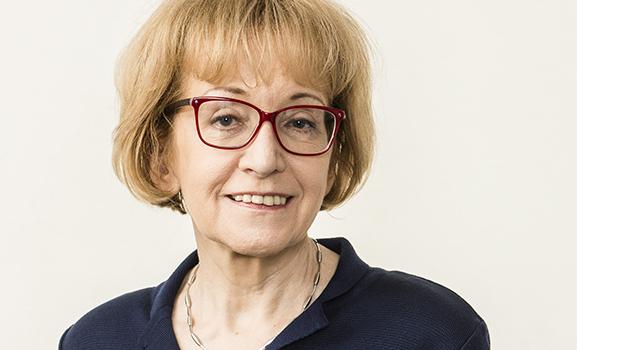Some Czech minorities, NGOs consider nomination of Human Rights Commissioner as ombudswoman a good choice

Representatives of some minority groups and NGOs consider the nomination of Czech Government Human Rights Commissioner Helena Válková, who is also an MP for the governing Association of Dissatisfied Citizens (ANO), to head the Office of the Public Defender of Rights (the ombudswoman) as a good choice. Most say they were not surprised by the nomination.
Civil society representatives contacted by the Czech News Agency are mostly praising Válková in her role as Human Rights Commissioner. Edita Stejskalová, a volunteer civil society member of the Czech Government Council for Romani Minority Affairs, welcomed the nomination.
Stejskalová said she was not surprised the current Human Rights Commissioner had been nominated for the Public Defender of Rights role. “Mrs Válková would be a brilliant choice. She is an immeasurably erudite, hard-working person. As Human Rights Commissioner, compared to her predecessors, she has made significant progress with the human rights agenda. She has also made many recommendations to the civil society section of the [Roma] Council (representatives of Romani organizations),” Stejskalová said.
Válková’s recent co-sponsoring of a bill to compensate the victims of illegally-performed sterilizations was one achievement Stejskalová mentioned. Václav Krása, the chair of the Czech National Disability Council and the shadow Social Affairs Minister for the Trikolora party, also welcomed the nomination.
“Professor Válková is a person who can perform that function. The ombudsman should not be an activist and should not interfere with certain matters. The role is not meant to explicitly address anything in particular. Its main task is to protect people from bureaucratic wrongdoing, not to get involved with politics. The ombudsman gets into unnecessary disputes by doing that,” Krása said.
The Disability Council chair said he believed Válková would not be an activist in that role. The Public Defender of Rights is also tasked with supervising how the rights of disabled people are upheld.
The proposal of the Human Rights Commissioner as a candidate for ombudswoman did not surprise Czeslaw Walek from the Czech Marriage Equality and Prague Pride organizations. “That choice was anticipated. She’s an experienced politician, which can aid the agenda. [Ombudswoman] Anna Šabatová was frequently blocked [by Parliament], which may not be the case with Ms Válková,” Walek said.
According to the LGBT rights activist, it can probably be assumed that as ombudswoman, Válková would continue to dedicate herself to the subjects she has already focused on as Human Rights Commissioner. Thanks to her political experience, she could drum up support for certain issues and might achieve some changes more easily, he said.
The Marriage Equality coalition advocates for the opportunity for gay and lesbian couples to marry. After becoming Human Rights Commissioner, Válková said the issue would not be a priority of hers and that she wanted to concentrate on the rights of children or of senior citizens.
Recently Válková announced she will be proposing the establishment of the post of Children’s Ombudsman. The Government, at her instigation, should also appoint a coordinator to focus on unifying the child welfare agenda with respect to at-risk children.
The Czech Government Human Rights Council’s Committee on the Rights of the Child has long recommended establishing the post of a Children’s Ombudsman and unifying the childcare agenda. “We are collaborating with Mrs Válková. As Human Rights Commissioner, the agenda of the Children’s Ombudsman and the coordination of the care provided to at-risk children is making significant progress,” said Klára Šimáčková Laurenčíková, a civil society member of that committee.
Laurenčíková said she could imagine Válková in the role of ombudswoman. Her appointment as Human Rights Commissioner in the spring sparked criticism from some experts on social issues, some representatives of the Romani community, and some members of the right-wing opposition.
Those critics pointed out, among other matters, that Válková had never been involved with the human rights agenda before. They also objected to some remarks she had made in the past.
